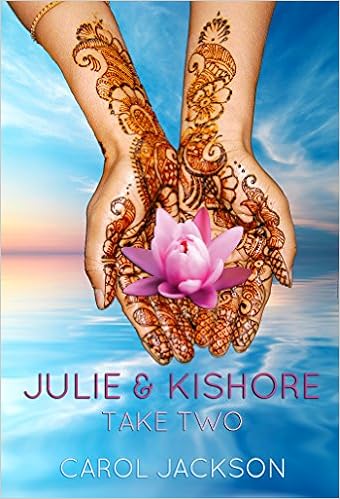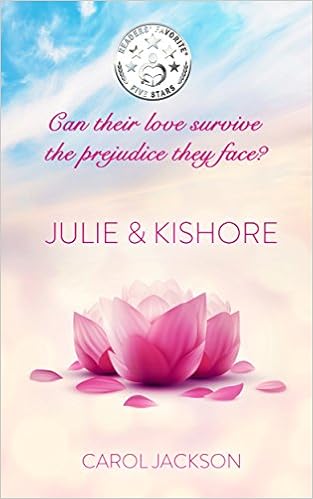Greetings, commies and lovers of all colors and faiths!
As temperatures continue to rise, we continue to explore the theme of of interracial romances involving white women and Indian men. A few weeks ago I reviewed a novel by another Ravenswood author Gry Finsnes, Goodbye Bombay, featuring a Norwegian lawyer and her Indian lover. Today I am pleased to circle back to Carol Jackson, whose debut autobiographical novel Julie & Kishore I featured last year. The love story continues in Julie & Kishore: Take Two.
The novel reads like a memoir - because it is to a large extent a memoir, rooted in the author's personal experiences. Her heroine faces prejudices without bitterness. What I find refreshing is that the speaker/protagonist, for being a thoroughly modern, empowered Western woman, she is not an activist of any sort. She is not championing for interracial marriage but rather pursuing her own happiness, even it it means stepping outside the boundaries of what is common in her social circle. Not being a deliberate rebel by nature, she does not bask in the controversy that her relationship causes. She still craves the support of her biological family. Julie is tangible and real, as she is no stranger to hand-wringing, giggling, gossiping or tearing up. She's girly and sentimental and vulnerable. I applaud the author for not depicting her heroine as a cartoonish social justice warrier who walks with her middle finger pointing towards the sky and whose every action is directed against the proverbial "convention". Julie is a very orthodox girl - in the context of 1980s New Zealand - who does something slightly unorthodox.
Let's be candid. Not all interracial marriages are the same. The differences are softened by the similarities in class. After all, Julie married an Indian boy from an upstanding family whose socioeconomic background was similar to hers. Would her parents be just as supportive if she were to marry a Maori? Historically, European-Asian and European-SouthAsian marriages have faced less scrutiny than European-African marriages.


No comments:
Post a Comment